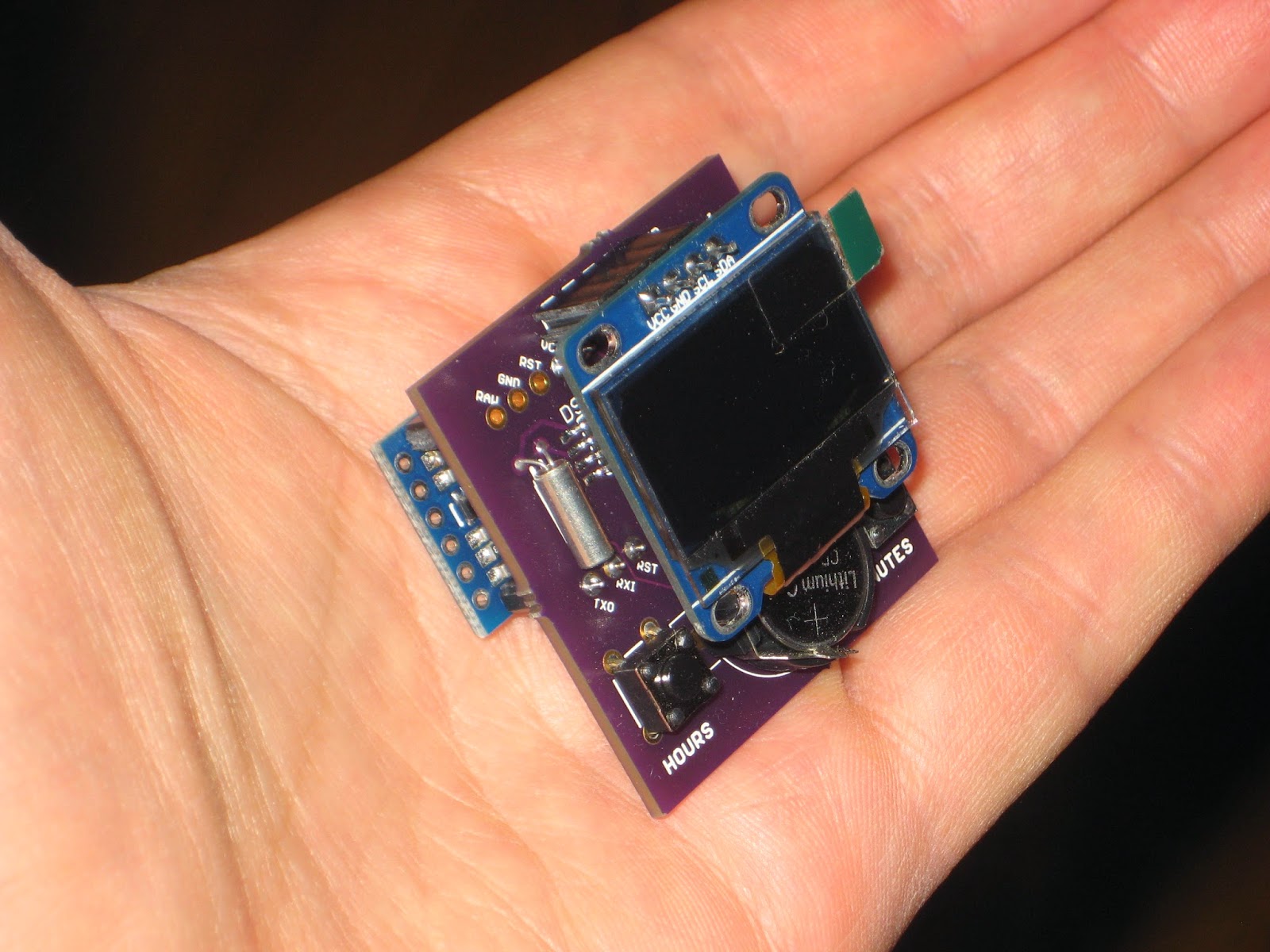OLED clock with Pacman mode
This large 2.42" OLED I2C module can be used as a replacement for the smaller 0.96" display for which I originally designed the ProMini OLED clock shield . It is built around the same SSD1306 chip, and it only comes in yellow (for now). MikeM wrote this great Pacman clock sketch for it (available for download here ), shown in the video below. To display on the OLED, Mike used U8glib graphic library. Initially tested on the 0.96" OLED, the sketch froze after some time, for a yet to be explained reason. The same sketch works perfectly with the 2.42" display. Mike spent a lot of time trying to figure out if the culprit is software (bug in the U8glib) or hardware. (Any feedback on this issue is greatly appreciated.) The clock can also display the time as HH:MM:SS on the whole screen, as shown in the photo below, also courtesy of Mike. My next step would be to design an enclosure for it. For that I will probably need some more help :) Update Nov 29, 2014, from MikeM: ...


